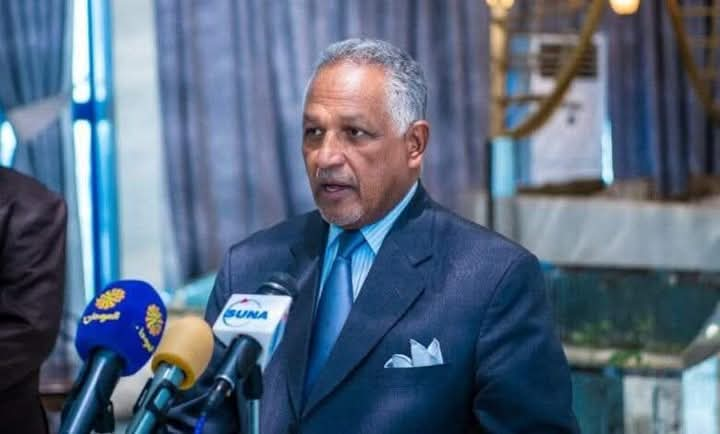Sudan’s military leader and head of the Sovereign Council, General Abdel Fattah al-Burhan, has appointed Ambassador Dafallah Al-Haj Ali Osman as Minister of Cabinet Affairs and de facto head of government, in a move that underscores a broader political shake-up amid the country’s ongoing civil war.
Al-Haj, Sudan’s current ambassador to Saudi Arabia, brings decades of diplomatic experience to the post. Since joining the Foreign Ministry in 1980, he has served in multiple senior positions, including ambassador to France, Pakistan, and the Vatican, as well as Sudan’s representative to the United Nations and the Organization of Islamic Cooperation (OIC). He was previously the Foreign Ministry’s undersecretary after the 2021 coup before being reassigned as envoy following the outbreak of war in April 2023.
Burhan’s decision to appoint Al-Haj follows the government’s February 2025 amendment to Sudan’s Constitutional Document, which granted the Sovereign Council authority to appoint and dismiss the Prime Minister upon the joint recommendation of the Sovereign Council and the Council of Ministers. The amendment also extended the transitional period by 39 months, starting from February 23, if no consensus or elections are reached.
Alongside Al-Haj’s appointment, the Sovereign Council confirmed two other key changes: Ambassador Omar Mohamed Ahmed Siddig was named foreign minister, and Dr. al-Tahami al-Zein Hajar Mohamed was appointed minister of education. The reshuffle comes after the dismissal of several former ministers, including ex-Foreign Minister Ali Youssif.
The political changes are taking place as Sudan continues to reel from a devastating internal conflict between the Sudanese Armed Forces (SAF), led by Burhan, and the paramilitary Rapid Support Forces (RSF), which began in April 2023. The fighting has left the capital Khartoum and cities like El Fasher in ruins, sparked widespread displacement, and collapsed vital state institutions.
According to UN figures, over 20,000 people have been killed and around 15 million displaced since the conflict began. Independent researchers from U.S. institutions estimate that the real death toll may be as high as 130,000, making it one of the deadliest conflicts of the 21st century.
The Sovereign Council says the formation of a new government is a step toward restoring civilian rule, though many opposition groups and international observers remain skeptical, citing ongoing violence, restricted civil liberties, and the lack of an inclusive political process.



